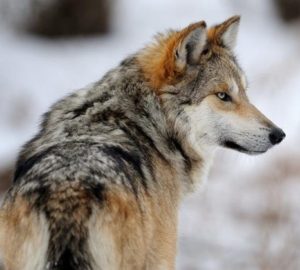 I can’t say that I really blame them. Livestock are money. Losing cattle or sheep to wolves comes straight out of their incomes.
I can’t say that I really blame them. Livestock are money. Losing cattle or sheep to wolves comes straight out of their incomes.
On the other hand, a planet with nothing but farms and ranches, cows and sheep, would be a dreary world. More importantly, wolves have a role to play in the ecosystems where they’re native, which is why the federal government reversed itself and reintroduced them — and began protecting them — after waging a lengthy extermination campaign against them. For pros and cons of having wolf populations, read this article (it focuses on Colorado, but the arguments are generally applicable).
(Note: Wolves have not been reintroduced in Washington; they drifted here from surrounding states and British Columbia.)
Now, there are complaints those efforts have been too successful, and there are too many wolves. In states like Montana and Idaho, where conservative politics predominate and ranching interests rule, state legislatures have tried to take wolf policy away from the U.S. Fish and Wildlife Service, and even their own state biologists, by liberalizing hunting. But that could backfire by leading to relisting of wolves under the Endangered Species Act. Read story here.
Sure looks like the ranching and wildlife conservative interests should get together and work something out; there are also best-practices ranchers and farmers can implement to reduce wolf predation of domestic animals.
For more details about wolves in the American West, go to this article. To read about wolves in Washington state, go here.
Photo: If you see him, don’t try to pet him; he isn’t a dog
In most parts of the world when protected carnivores take livestock the ranchers are reimbursed by the state more or less equivalent to the market value.
If you really want to help conserve wildlife then buy a duck stamp. Hunters have made large contributions to conservation efforts, and there are fewer of them and non hunters don’t make up for fewer hunters in their contributions to wildlife contributions including paying for livestock taken by protected wildlife.